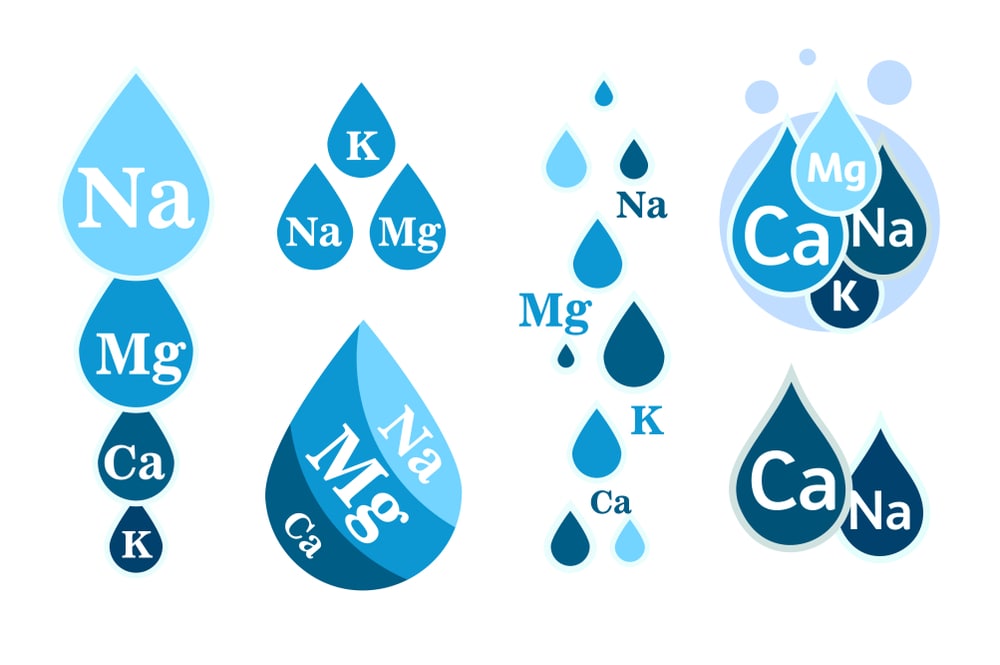There are many chemicals in the bloodstream that regulate important functions of bodies. These chemicals are called electrolytes. When dissolved in water, electrolytes separate into positively and negatively charged ions. The human body’s nerve reactions and muscle functions are dependent upon the proper exchange of these electrolyte ions outside and inside cells. Examples of electrolytes are calcium, magnesium, potassium, and sodium. Electrolyte imbalance can cause a variety of symptoms.

Table of Contents
Normal Adult Values
Calcium : 4.5-5.5 mEq/L
Chloride : 97-107 mEq/L
Potassiuim : 3.5-5.3 mEq/L
Magnesium : 1.5-2.5 mEq/L
Sodium : 136-145 mEq/L
Electrolyte Imbalance
The level of electrolytes in the body is abnormal called an electrolyte imbalance. An excess or deficiency of certain electrolytes may lead to abnormality in various functions of the body. The most serious electrolyte disturbance involves abnormalities in the levels of Sodium, Potassium, or Calcium. Other electrolyte imbalance is less common. There are many causes of electrolyte imbalance, including rapid water loss through diarrhoea, vomiting, perspiration, injury, blood loss, fluid loss from burns, eating disorders, alcoholism, cancer, diabetes, and certain medication.
There are many causes for an electrolyte imbalance. Causes for an electrolyte imbalance may include Loss of body fluids from prolonged vomiting, diarrhoea, sweating, or high fever. Inadequate diet and lack of vitamins from food.
Malabsorption
The body may be unable to absorb these electrolytes due to a variety of stomach disorders, medications, or maybe how food is taken in Hormonal or endocrine disorders and Kidney disease. A complication of chemotherapy is tumor lysis syndrome. This occurs when the body breaks down tumor cells rapidly after chemotherapy, causing a low blood calcium level, high blood potassium levels, and other electrolyte abnormalities. Certain medications may cause an electrolyte imbalance such as Chemotherapy drugs (Cisplatin) Diuretics (furosemide [Lasix] or Bumetanide) Antibiotics (Amphotericin B) Corticosteroids (Hydrocortisone).
Symptoms of Electrolyte Imbalance
An electrolyte imbalance may create a number of symptoms. The symptoms of electrolyte imbalance are based on which of the electrolyte levels are affected.
• Blood test results indicate altered potassium, magnesium, sodium, or calcium levels, may experience muscle spasm, weakness, twitching, or convulsions.
• Blood test results showing low sodium levels may lead to irregular heartbeat, confusion, blood pressure changes, nervous system, or bone disorder.
• Blood test results showing high levels of calcium may lead to weakness or twitching of the muscles, numbness, fatigue, irregular heartbeat, and blood pressure changes.
Also Read: Cellular swelling in cell injury
